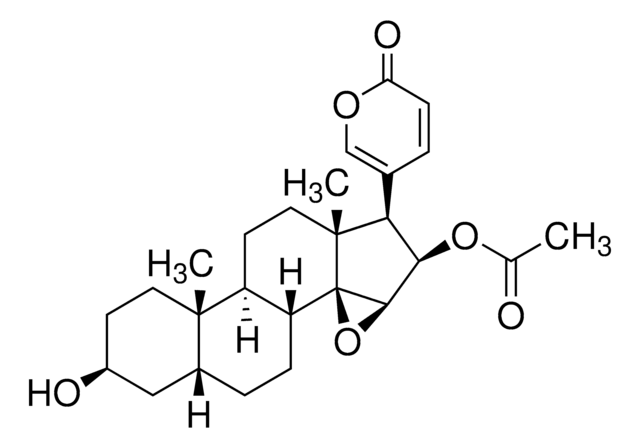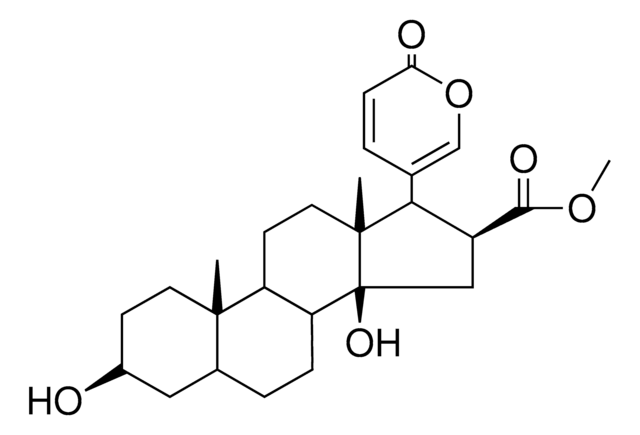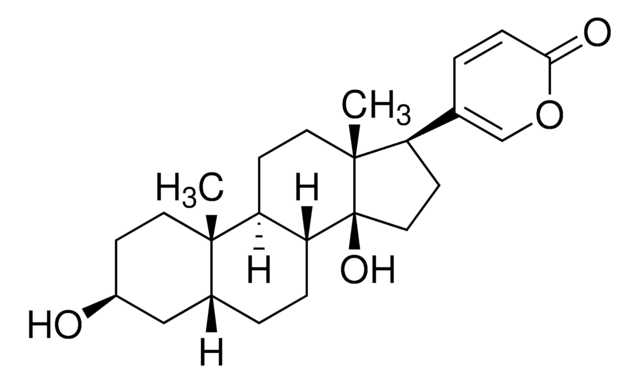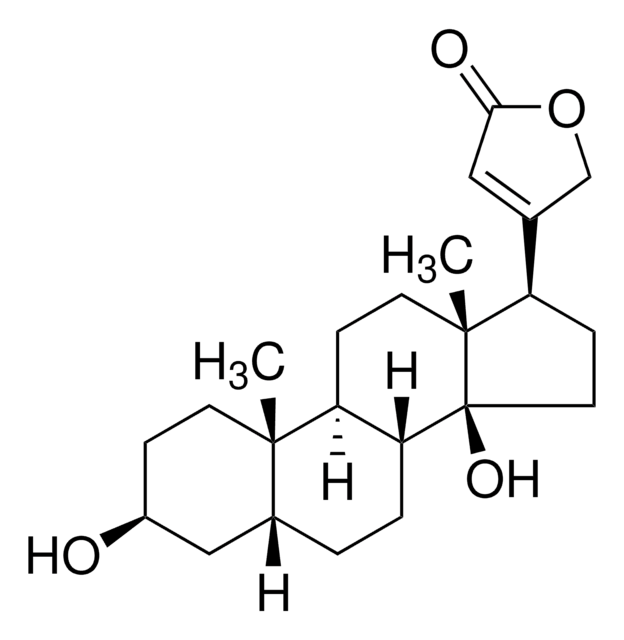B0261
Bufalin
Synonym(s):
3β,14-Dihydroxy-5β,20(22)-bufadienolide, 5β,20(22)-Bufadienolide-3β,14-diol
About This Item
Recommended Products
Assay
≥97% (HPLC)
Quality Level
form
solid
solubility
DMF: soluble
DMSO: soluble
ethanol: soluble
storage temp.
2-8°C
SMILES string
O[C@]([C@@](CC[C@@]1([H])[C@@]2(CC[C@H](O)C1)C)([H])[C@]2([H])CC3)(CC[C@@H]4C(C=C5)=COC5=O)[C@]34C
InChI
1S/C24H34O4/c1-22-10-7-17(25)13-16(22)4-5-20-19(22)8-11-23(2)18(9-12-24(20,23)27)15-3-6-21(26)28-14-15/h3,6,14,16-20,25,27H,4-5,7-13H2,1-2H3/t16-,17+,18-,19+,20-,22+,23-,24+/m1/s1
InChI key
QEEBRPGZBVVINN-BMPKRDENSA-N
Looking for similar products? Visit Product Comparison Guide
General description
Application
- to test its effect on invasion and activation of nuclear factor kappa- B (NF-κB) cells and tumor necrosis factor-α (TNF-α) stimulated rheumatoid arthritis fibroblast-like synoviocytes (RAFLSs)
- as a nuclear receptor coactivator 3 (NCOA3) inhibitor in chondrocytes
- to test its anti-metastasis effect in lung cancer cells (NCI-H460) resistant to gefitinib
Biochem/physiol Actions
Signal Word
Danger
Hazard Statements
Precautionary Statements
Hazard Classifications
Acute Tox. 2 Oral
Storage Class Code
6.1A - Combustible acute toxic Cat. 1 and 2 / very toxic hazardous materials
WGK
WGK 3
Flash Point(F)
Not applicable
Flash Point(C)
Not applicable
Personal Protective Equipment
Choose from one of the most recent versions:
Already Own This Product?
Find documentation for the products that you have recently purchased in the Document Library.
Customers Also Viewed
Our team of scientists has experience in all areas of research including Life Science, Material Science, Chemical Synthesis, Chromatography, Analytical and many others.
Contact Technical Service








